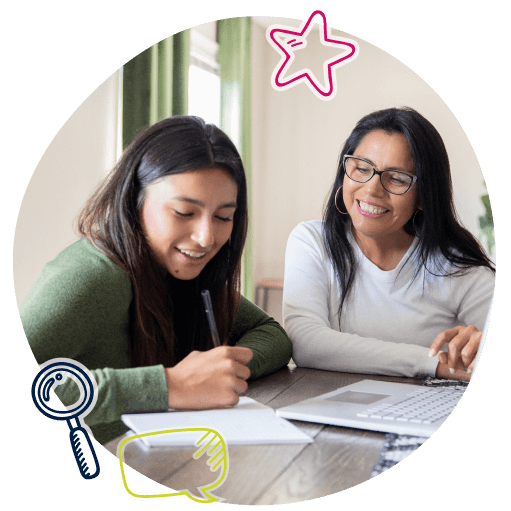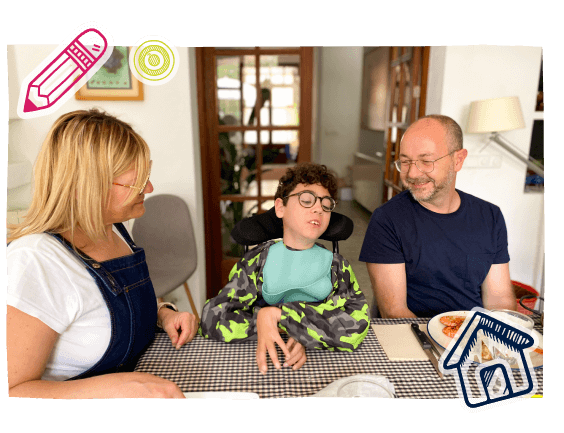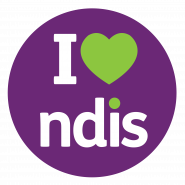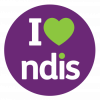Helping children and adolescents to thrive
Ability Action Australia provides a range of therapeutic, positive behaviour and school leaver employment support services to support children aged over 9 and adolescents living with disability.
Together with parents and carers, we help build a child’s abilities and support them to experience a fulfilling life and reach goals that are important to them. This can include support to:
- Engage in everyday activities, tasks and occupations
- Develop appropriate, positive behaviours
- Manage transitions around schooling and school to work
- Enhance their participation in everyday life
We provide our services where and when it suits children and families. This can include comfortable and convenient spaces at home, school, or in the community.
“This is amazing and I’m getting teary as this means so much to me (your support of my little man). Understanding his needs means the world. Thank you so much!”

Want to learn more? Let’s talk about the best options for your child and family



Why choose Ability Action Australia?

Our approach to supporting children over 9 and adolescents
When supporting children and adolescents, we use age-appropriate therapies that are easy to follow and tailored to the specific needs of the child and their family.
We use a multidisciplinary approach, where a team of people with different skills will work together to plan and provide services to a child.
We also take a collaborative approach, working with the whole family to develop and work toward joint goals. A key part of this is coaching and upskilling parents to be able and confident to make the right decisions for their child and family.

How we work with children and adolescents
We like to tailor our services to the needs of each child or adolescent who we are supporting. The usual process is as follows:

Introduction and discovery
We meet with you and your child to chat about your needs. We complete a questionnaire to explore developmental and medical history, education and any areas of concern.

Consultation
We talk to important people in your child’s life to learn more about their needs. This could include other support providers, teachers, or people in your support network.

Goal setting
Together, we develop goals that are meaningful to you and your child.

Assessments
We conduct a range of standardised, functional and observational assessments to better understand your child’s skill level.

Reporting
If required, we will provide relevant and appropriate reports from our observations and recommendations.

Therapy
The evidence-based therapy program is activated, focused on activities that suit your child’s strengths, interests and goals.

Education and upskilling
We provide education for parents, carers, support workers or teachers to help them implement therapy each day and improve the child’s function within day-to-day life.
Learn more about our support for children and adolescents
We work with children living with all levels of disability, across the age span. Our clinicians deliver tailored services that focus on improving quality of life and making everyday life easier.
Our paediatric team is involved in working with all types of conditions, including:
- Autism Spectrum Disorder
- Developmental delays and learning disabilities
- Cerebral palsy and other neurological disorders
- Genetic disorders such as Down’s Syndrome
- Mental health conditions such as attention deficit hyperactivity disorder, anxiety and depression
As a registered NDIS provider, Ability Action Australia offers flexible and tailored services to ensure we are fully supporting children, adolescents and families to reach their goals.
When you work with Ability Action Australia, you have access to multiple clinicians with different fields of interest and expertise, including paediatrics, mental health, and physical disability. Our services include:
We know that everyone is different, with their own unique interests, ideas and goals. This includes teenagers. We get to know and understand each teenager that we work with, so that we can focus on what’s important and exciting to them.
We involve and work alongside parents, carers and family to support a teenager with their goals. And we can also work with supports to upskill both teenagers and the people who support them.
Not always. As play is a crucial occupation in early childhood, it is often a large focus in that period of child’s life.
But, as children transition into their teenage years and beyond, our clinicians will focus on their unique, personal interests and occupations to deliver therapy that supports skill development and independence.
Want to learn more? Let’s talk about the best options for your child and family



Child Safe Organisation
Ability Action Australia is committed to being a Child Safe Organisation. We align with the National Principles for Child Safe Organisations which includes ensuring that the safety, wellbeing, and rights of children and young people are upheld. If you would like a copy of our child safety and wellbeing policy, please email a request to hello@abilityactionaustralia.com.au

NDIS therapeutic, positive behaviour and employment supports
The National Disability Insurance Scheme (NDIS) is a way of supporting people with permanent and significant disability. The NDIS is designed to give individuals greater choice and control over when, where and how their funded supports are provided. The specific support and funding available is based on each individual’s specific needs. You can find out more about what therapeutic supports are funded by referring to the NDIS website.
Ability Action Australia provides therapeutic, positive behaviour and employment supports across Australia.

